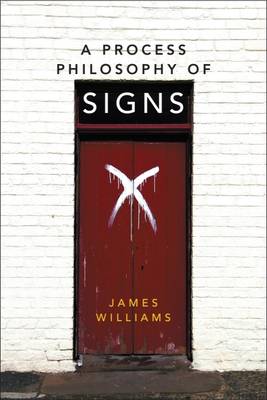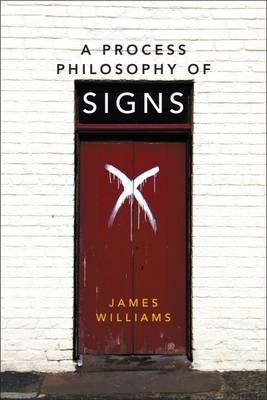
Je cadeautjes zeker op tijd in huis hebben voor de feestdagen? Kom langs in onze winkels en vind het perfecte geschenk!
- Afhalen na 1 uur in een winkel met voorraad
- Gratis thuislevering in België vanaf € 30
- Ruim aanbod met 7 miljoen producten
Je cadeautjes zeker op tijd in huis hebben voor de feestdagen? Kom langs in onze winkels en vind het perfecte geschenk!
- Afhalen na 1 uur in een winkel met voorraad
- Gratis thuislevering in België vanaf € 30
- Ruim aanbod met 7 miljoen producten
Zoeken
Omschrijving
We usually think of signs as fixed relations: a red light signifies 'Stop'. In his bold new book, James Williams argues that signs are processes: you see the red light and think 'should I stop?', triggering a creative response. Williams develops this new process philosophy of signs through a formal model, in contrast to earlier structuralist definitions. He draws on the philosophies of Deleuze and Whitehead, criticises earlier work on the sign in biology by Jakob von Uexküll, and connects to contemporary work on process in the philosophy of biology by John Dupré. The process model has wide applications in the arts, humanities and social sciences, and informs their critical debates with science. In defining the sign as essentially political, this radical definition of the sign opens up new possibilities for social and political critique.
Specificaties
Betrokkenen
- Auteur(s):
- Uitgeverij:
Inhoud
- Aantal bladzijden:
- 208
- Taal:
- Engels
Eigenschappen
- Productcode (EAN):
- 9780748695010
- Verschijningsdatum:
- 2/02/2016
- Uitvoering:
- Paperback
- Formaat:
- Trade paperback (VS)
- Afmetingen:
- 152 mm x 231 mm
- Gewicht:
- 362 g

Alleen bij Standaard Boekhandel
+ 96 punten op je klantenkaart van Standaard Boekhandel
Beoordelingen
We publiceren alleen reviews die voldoen aan de voorwaarden voor reviews. Bekijk onze voorwaarden voor reviews.









